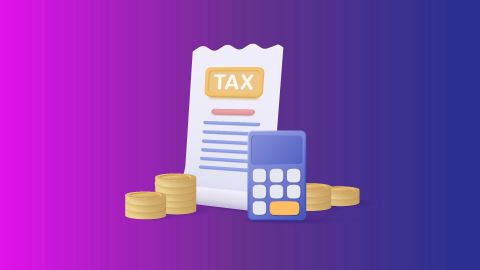Technology can help to improve customer experience and boost revenues in the long run. Not so long ago, audits were primarily performed manually by auditors. Digging financial information from volumes of paper was the norm. However, technological advances have changed the dynamics of the game. Today, auditing firms need to embrace the latest technology and tools, including automation, artificial intelligence (AI), and robotics, to stay competitive.
One of the findings of the Forbes Insights surveys offer a glimpse of how technology is going to shape auditing in the coming days:
- 58% of respondents believed that technology would have the biggest impact on the audit profession in the next few years
- 80% of respondents said that auditors should use more sophisticated technology for gathering and analysing data for their day-to-day work
- By 2020, smart machines will feature among one of the top five investment priorities for more than 30% CFOs
The results of the surveys make it apparent that technology will have a big say in the way auditing firms do business. Let’s understand the importance of technology in an auditing firm.
1. Analyse data
Analysing large volumes of data quickly and precisely is one of the foremost challenges for auditors. A manual analysis takes a lot of time, with a greater chance of error. However, AI helps firms precisely analyse vast amounts of data at a much faster rate.
Cognitive technology, also known as artificial intelligence, can go through a vast amount of data faster and more precisely than any person. It can also determine where a company’s practices have gone or might go wrong. Also, it can point out where and how systems, operations, processes and controls can be improved.
A cognitive system learns as it goes along, allowing it to broaden and refine its knowledge and analytical capabilities, similar to how traditional audit professionals build their skills over the years.
For example, cognitive technology allows auditors to obtain and analyse information from non-traditional sources, including social media, TV, radio and the internet, and determine if any of this information has the potential to affect an audit either directly or indirectly.
It can then combine and process this data with the client’s own financial and other records. Then, advanced analytics can draw a deeper, more robust understanding of potential business risks.
2. Reduce error
In a profession that involves a lot of processes and critical data handling, the chances of errors can’t be nullified. These errors can have an enormous impact. In the US, in 2013, businesses had to face IRS civil penalties of USD 7 billion due to incorrect reporting of business income and employment values.
Errors can also cost auditing firms dearly. The US Securities and Exchange Commission slapped a penalty of USD 6.2 million on one of the big four auditing giants for failing to audit the financial statements of an oil and gas company properly. The firm’s audit team failed to spot double counting of certain fixed assets in the company's financial statements.
Having proper accounting software helps improve the accuracy of your records. An incorrect computation early on in the process could snowball into having a significant impact on the end balance. However, accounting software is not immune to human errors which arise from data entry or interpretation mistakes.
3. Enhance audit quality
Data analytics is a new discipline for auditors. Data analytics helps auditors improve the risk assessment process, the test of controls, and substantive procedures. A survey conducted by business consultancy firm Protiviti involving more than 900 internal audit professionals found 73% of companies performing analytics saying that the demand for data analytics has increased.
The combination of big data, visualisation tools, and advanced analytics gives auditors useful insights that impact how they plan, execute, and deliver an audit.
Through data analytics techniques, auditing firms can analyse client data right from the beginning and identify the areas that need investigation. Thus, the problems are sorted as early as possible, helping enhance the overall audit quality.
The power of big data further enables auditors to correlate disparate data information to develop predictive indicators for better identification of higher risk areas, which could lead to early fraud identification and operational risks. For example, firms can build predictive models to forecast financial distress and better assess the future financial viability of a company. They could also improve fraud detection by helping auditors assess the risk of fraud as part of their risk assessment.
CAs and auditors can make use of a chartered accountant loan to leverage big data for their firm. With loans ranging up to Rs. 80 lakh, affordable interest rates, no end restrictions on the use of the loan and doorstep services, these finance solutions are custom-made for professionals like you.
4. Improve customer experience
According to a report, brands lose up to 20% in revenues due to poor customer experience. A Capgemini study reveals that customers with strong brand attachments deliver 23% more profit than an average customer. In modern business, it's imperative for auditors to focus on customer experience. New-age customers want more than compliance work and after-the-fact reporting.
Cloud computing is a tool that has become a necessary business partner and strategy for successful audit firms. It facilitates comprehensive data storage, swift recovery and cost-effective management. Firms can take on more clients and broaden their reach in the market without assuming security risks of doing so.
Cloud computing ensures that all stakeholders remain in contact outside the firm’s walls while still establishing and maintaining a secure environment. When mobility eases, a firm’s access is limitless.
Other areas where such technologies may introduce efficiencies include processing confirmation responses or using drones for physical inventory observations. As a result, the auditor should have more time to carefully examine the more complex and higher risk areas that require increased auditor judgment and contain high levels of estimation uncertainty. Such tools will also enable auditors to perform advanced analytics, providing them with greater awareness and deeper insights into the company's operations.
DISCLAIMER:
While care is taken to update the information, products, and services included in or available on our website and related platforms/websites, there may be inadvertent inaccuracies or typographical errors or delays in updating the information. The material contained in this site, and on associated web pages, is for reference and general information purpose and the details mentioned in the respective product/service document shall prevail in case of any inconsistency. Subscribers and users should seek professional advice before acting on the basis of the information contained herein. Please take an informed decision with respect to any product or service after going through the relevant product/service document and applicable terms and conditions. In case any inconsistencies observed, please click on reach us.
*Terms and conditions apply








